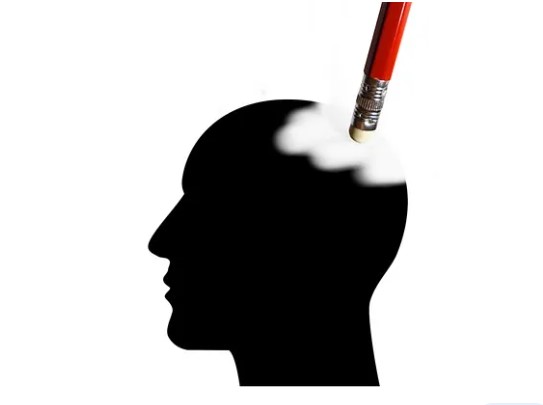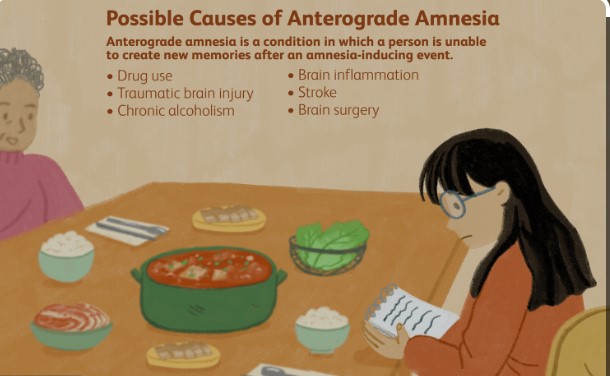Amnesia stands as one of the most compelling phenomena in the realm of cognitive health, captivating both medical professionals and the public alike. Its effects can be profound, altering lives and challenging our understanding of memory and identity. Among its types, anterograde and retrograde amnesia are particularly notable for their distinctive impacts and the intriguing contrasts between them.
Anterograde amnesia refers to a loss of the ability to create new memories after the event that caused the amnesia, while retrograde amnesia involves the inability to recall past memories or information that was known before the event. These conditions can arise from various causes, including brain injury, illness, or severe psychological stress, each affecting the brain’s memory-processing capabilities differently.
Exploring these two types of memory loss reveals much about how our memories are formed and stored. Anterograde and retrograde amnesias affect individuals in ways that can dramatically influence their ability to interact with the world and maintain a continuous personal narrative. This exploration into their causes, symptoms, diagnosis, and treatment offers valuable insights into the resilience and complexity of the human brain.

What is Amnesia?
Amnesia is a form of memory loss that affects the ability to learn new information or recall information that was already known. This condition can vary in severity and duration, impacting daily life and activities significantly. At its core, amnesia typically involves problems with memory storage, retrieval, or the formation of new memories, which can be temporary or permanent depending on the underlying cause.
Types of Amnesia
Amnesia comes in various forms, but the most discussed types are anterograde and retrograde amnesia. Each type affects different parts of memory:
- Anterograde amnesia: Inability to form new memories following the onset of amnesia.
- Retrograde amnesia: Loss of memories that were formed before the onset of amnesia.
These distinctions are crucial for understanding how amnesia affects individuals and the approach needed for diagnosis and treatment.
Anterograde Amnesia
Anterograde amnesia is characterized by an inability to create new memories after the event that caused the condition. This type of amnesia does not affect a person’s intelligence or general knowledge, but it does prevent the storage of new information.
Causes
The causes of anterograde amnesia often involve damage to the brain regions that are critical for learning new information, such as the hippocampus and surrounding areas. Common causes include:
- Brain trauma from accidents
- Strokes affecting specific brain areas
- Brain infections like encephalitis
- Prolonged alcohol abuse, which can lead to Wernicke-Korsakoff syndrome
Symptoms
The primary symptom of anterograde amnesia is the inability to retain new information. Other signs include:
- Repeating questions or statements
- Forgetting recent events or conversations
- A visible struggle to recall very recent happenings
Diagnosis
Diagnosing anterograde amnesia involves several steps:
- Detailed medical history
- Cognitive tests specifically designed to assess memory function
- Brain imaging tests to detect possible damage
Treatment Options
Treatment for anterograde amnesia focuses on strategies to support memory and manage symptoms:
- Memory aids like notebooks or digital devices
- Cognitive therapy to develop compensation techniques
- Medication to address underlying causes or improve cognitive function
Retrograde Amnesia
Retrograde amnesia involves a loss of access to memories that were formed before the onset of amnesia. Unlike anterograde amnesia, retrograde affects the ability to recall past information ranging from personal experiences to general knowledge.
Causes
Causes of retrograde amnesia can overlap with those of anterograde amnesia but also include:
- Severe head injuries
- Diseases that damage brain cells, like Alzheimer’s disease
- Severe psychological stress or trauma
Symptoms
Symptoms of retrograde amnesia include:
- Inability to remember personal history or previously known facts
- Confusion or disorientation related to past memories
- Emotional distress due to gaps in memories
Diagnosis
The diagnosis of retrograde amnesia also relies on:
- Assessing the extent of memory loss through interviews and tests
- Evaluating other cognitive functions to rule out broader cognitive impairments
- Imaging studies to identify any visible brain injuries
Treatment Options
Treatment for retrograde amnesia aims to help recover some of the lost memories and adapt to the condition:
- Psychological counseling to help adjust to memory loss
- Techniques to potentially retrieve lost memories, such as guided therapy
- Supportive care and family involvement to provide emotional and practical support

Comparing Both Types
Anterograde and retrograde amnesia are two prominent types of memory disorders, each presenting unique challenges to those affected. A direct comparison highlights their distinctive features and how they influence memory differently.
Key Differences
Symptoms
- Anterograde Amnesia: Individuals cannot form new memories; everyday interactions and learning are profoundly impacted.
- Retrograde Amnesia: The main symptom is the loss of pre-existing memories, ranging from personal experiences to learned knowledge.
Causes
- Anterograde Amnesia: Often caused by damage to the hippocampus or surrounding areas critical for memory formation, such as through head injuries or chronic alcoholism.
- Retrograde Amnesia: Can also be triggered by brain damage but is frequently associated with broader areas of the brain, reflecting the widespread nature of memory recall.
Impacts
- Anterograde Amnesia: Severely limits a person’s ability to acquire new information, affecting educational and professional development.
- Retrograde Amnesia: Affects personal identity and continuity, as individuals may not remember significant portions of their life.
Memory Affected
Anterograde amnesia primarily affects declarative memory (memory of facts and events), impairing one’s ability to add new information. Retrograde amnesia disrupts access to long-term memories, which can include both declarative and procedural (skills and tasks) memories, leading to difficulties in connecting with one’s past.
Personal Stories
Anterograde Amnesia Cases
John: After a severe head injury in a car accident, John has been unable to form new memories. His day resets every morning, relying heavily on digital notes and family support to navigate daily life.
Retrograde Amnesia Cases
Mary: Following a traumatic brain injury, Mary could not recall any events from her childhood or recognize her own family, drastically altering her personal identity and emotional bonds.
Impact on Daily Life
Anterograde amnesia makes it challenging for individuals to learn new tasks or remember recent events, which can hinder personal independence and job performance. Retrograde amnesia affects the ability to draw upon past experiences, which can complicate social interactions and personal decision-making.
Coping Mechanisms
Families and individuals with amnesia employ various strategies to manage the condition:
- Memory aids: Using digital apps, alarms, and physical notes to keep track of daily activities and important information.
- Routine establishment: Maintaining a consistent daily routine to minimize the need for new memory formation.
- Social support: Leaning on family and friends for assistance and reminders can significantly help manage both types of amnesia.
Advances in Treatment
Recent advancements in the treatment of amnesia include:
- Cognitive rehabilitation: Techniques that help strengthen the brain’s ability to store and retrieve memories and compensate for memory loss.
- Pharmacological interventions: Research into drugs that can improve memory function or mitigate the effects of brain damage is ongoing.
Future Prospects
The future of amnesia treatment looks promising with several potential developments:
- Gene therapy: Exploring genetic factors that could enhance memory recovery and regeneration.
- Brain-computer interfaces (BCIs): Developing devices that can assist in memory recall or new memory formation.
Frequently Asked Questions
What triggers anterograde amnesia?
Anterograde amnesia is commonly triggered by brain trauma, such as a blow to the head, but it can also result from acute neurological events like strokes or brain infections. Prolonged alcohol abuse leading to conditions such as Wernicke-Korsakoff syndrome is another significant cause.
How is retrograde amnesia diagnosed?
Diagnosing retrograde amnesia typically involves a combination of medical history assessment, neurological exams, and memory tests. Imaging tests like MRI and CT scans may also be used to identify any physical damage to the brain that could be contributing to memory loss.
Can amnesia be treated?
While there is no cure for amnesia, treatment strategies focus on managing symptoms and supporting memory function through cognitive therapy and rehabilitation. Medications may be used to address underlying causes, such as infections or neurological issues.
Is amnesia always permanent?
Amnesia can be transient or permanent, depending on its cause. Some forms of amnesia, such as those induced by minor head injuries or psychological factors, can resolve over time. However, amnesia caused by severe brain damage is often irreversible.
What distinguishes anterograde from retrograde amnesia?
The key distinction lies in the direction of memory loss: anterograde amnesia prevents the formation of new memories following the onset of the condition, whereas retrograde amnesia erases memories formed before the event that caused the amnesia.
Conclusion
Amnesia, particularly anterograde and retrograde types, poses significant challenges for those affected, influencing personal identity and daily functioning. This examination sheds light on the delicate structure of human memory and the profound effects of its disruption. By understanding more about these conditions, medical professionals can better address the complex needs of amnesiac patients, fostering strategies that support memory retention and recovery.
As research continues to unravel the mysteries of the brain, hope remains that advancements in medical science may one day offer more effective treatments or preventive measures for memory loss. Until then, the resilience of individuals and the support from the medical community play a crucial role in navigating the realities of amnesia.
